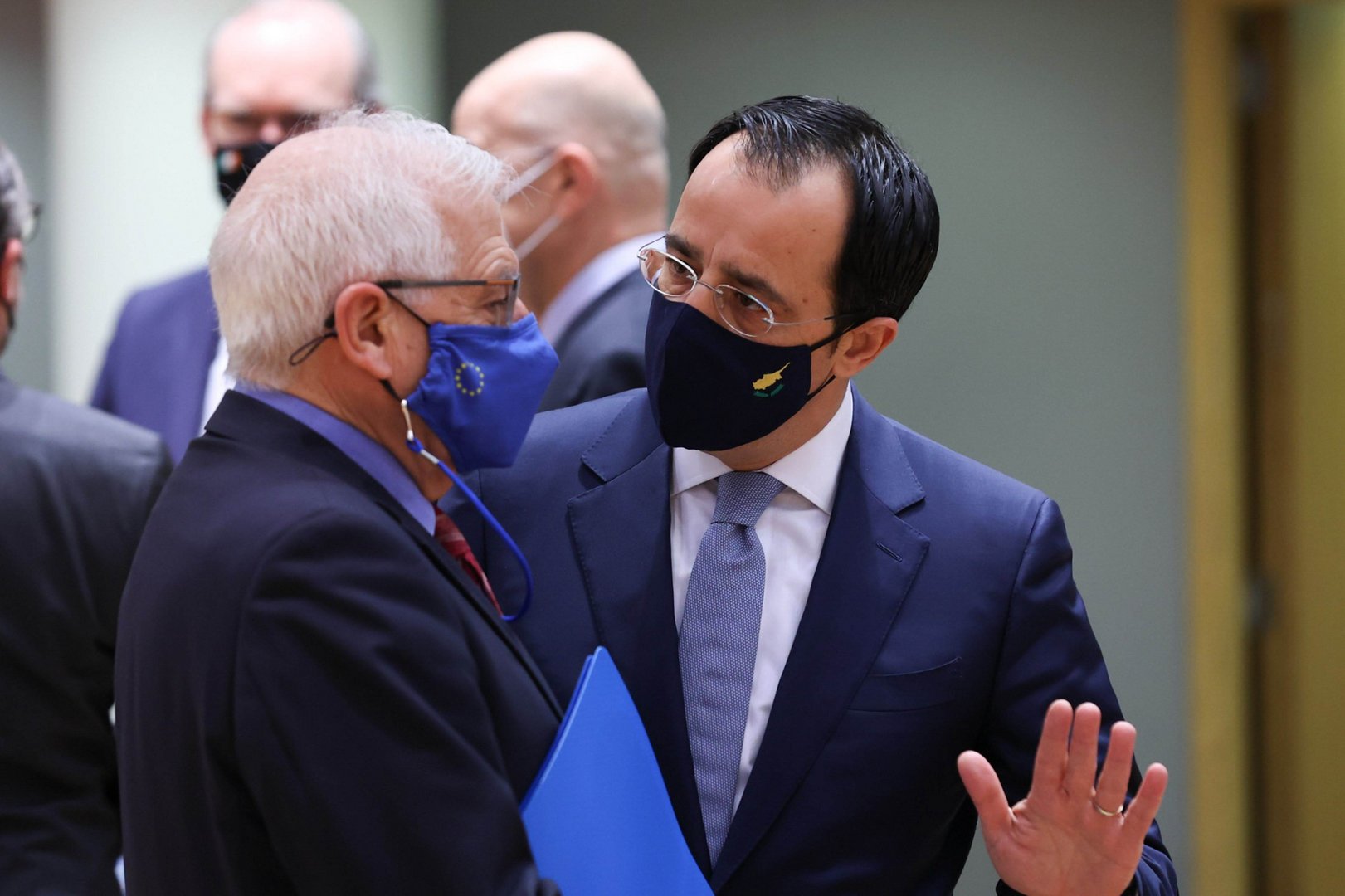Even if agreement was reached on political equality it would not mean the Cyprus problem would be solved since other aspects needed to also be agreed on, Foreign Minister Nikos Christodoulides said on Tuesday.
The minister was speaking to state broadcaster CyBC radio about Monday’s Foreign Affairs Council (FAC) which discussed the report prepared by the EU High Representative for Foreign Affairs Josep Borrell on EU-Turkey relations.
According to Christodoulides, the content of the report, that uses a “carrot-and-stick approach” for Turkey, was discussed on Monday by the EU foreign ministers.
“Discussion will continue by the EU leaders and they are the ones to set the policy on EU-Turkish relations,” Christodoulides said. EU leaders will meet virtually on Thursday and Friday.
The minister said Nicosia welcomes as a positive development that the Cyprus problem has been highlighted as the main element in relations between the EU and Turkey and that without a solution it will not be possible to talk about the normalisation of Ankara’s relations with the bloc.
According to the minister, it was very important to see the Cyprus problem linked with the positive agenda on Turkey especially before next month’s UN-led informal summit on Cyprus in Geneva. He explained that the report clearly states that Turkey’s gradual deterioration of relations with the EU was also due to the failure of progress on the Cyprus problem negotiations process.
“The main point for us right now is the highlighted urgency of the Cyprus problem by the EU to be turned into positive developments on the negotiations table,” Christodoulides said.
The island’s two community leaders and guarantors Greece, Turkey and the UK will meet towards the end of April in Geneva in an informal summit under UN auspices to discuss the way forward on the Cyprus problem.
Christodoulides spoke on Monday with UK Foreign Secretary Dominic Raab, discussing the EU’s participation in the summit. “I do not wish to speak on behalf of the UK, but they see the added value of the EU’s participation in the summit since Cyprus is a member state and will continue to be after the solution,” Christodoulides said.
Preparation is currently underway on the six parameters of the Guterres Framework with the government also receiving advice from experts from abroad to prepare some documents which could be used as “food for thought as part of the preparation so that a positive result emerges from the Geneva summit,” he said.
On the issue of political equality, Christodoulides said the Framework does not only refer to this issue. “It is not right to focus on only one aspect of the Framework because even if there are convergences on one of them, this will not mean the Cyprus problem is solved.”
There are other issues, on which discussion needs to procced such as that of territory, which is important to the solution efforts, the minister said.
The elements of the Guterres Framework, stipulated by the UN secretary-general at the talks in 2017 in Crans-Montana, relate to the issues of territory, political equality, property, equivalent treatment, security and guarantees.
In his report, Borrell suggested that the EU should start negotiations on deeper trade ties with Turkey but be ready to impose economic sanctions if Ankara moves against the bloc’s interests.
“Strengthening our already substantial economic ties is another win-win situation for both sides…. At the heart of this would be the modernisation and expansion of the scope of the current EU-Turkey Customs Union,” said the report.
The report said Turkey deserved more financial support for hosting millions of Syrian refugees, as well as visa-free travel to the EU, more high-profile diplomatic contacts and an expanded customs union.
But such progress would only be possible if Turkey respected human rights and showed greater flexibility over Cyprus and hydrocarbon rights in the eastern Mediterranean.
Taking back almost 1,500 migrants living on Greek islands, and whose legal appeals have now been exhausted, would also be critical.
“Should Turkey not move forward constructively in developing a genuine partnership with the EU, it should be made clear that this would bear political and economic consequences,” it said.







Click here to change your cookie preferences